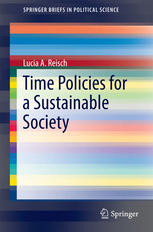

Most ebook files are in PDF format, so you can easily read them using various software such as Foxit Reader or directly on the Google Chrome browser.
Some ebook files are released by publishers in other formats such as .awz, .mobi, .epub, .fb2, etc. You may need to install specific software to read these formats on mobile/PC, such as Calibre.
Please read the tutorial at this link: https://ebookbell.com/faq
We offer FREE conversion to the popular formats you request; however, this may take some time. Therefore, right after payment, please email us, and we will try to provide the service as quickly as possible.
For some exceptional file formats or broken links (if any), please refrain from opening any disputes. Instead, email us first, and we will try to assist within a maximum of 6 hours.
EbookBell Team

0.0
0 reviewsThis book explores time use, time policy, well-being and sustainable development using concepts and findings from time policy research, socio-ecological sustainability research, behavioral economics, consumer research, and research into prosperity and "the good life". Because any change in time structures, whether opening or working hours, school or travel times, has large scale impacts on other times that should ideally be recognized, the political and social restructure and negotiations for more effective time policy must include cross-cutting issues in the relevant sector policies – family, health, consumer, diet, environment, education, technology, transport, urban and labor market policy – and develop time policy strategies and instruments specific to each sector. This book is an interdisciplinary look into how society and government structure time policy, the procedural component of and possibility of a transformation or improvement in time-use, i.e. the "how" of change, what are transformation processes, how can they be explained, and how can change processes be ideally shaped? This book outlines the possibility of a transformation to sustainability in time policy. It will be of interest to researchers in economics, social and political science, social policy, government, quality of life studies, and education.